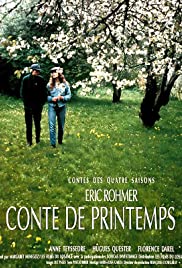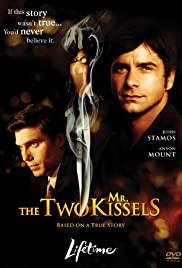
Simple conversations engender complicated human interactions. The first in Eric Rohmer’s Four Seasons series, Conte de printemps (A Tale In Springtime) is the story of an introverted young girl (Florence Darel) just reaching adulthood who takes a liking to an older woman she meets at a party (Anne Teyssedre) and determines to match her off with her father (Hugues Quester), despite the latter’s already having a lover of his own. There is a certain absurdity to this, apparent to both adults, who though both reluctantly attracted to each other resent Darel’s attempts at matchmaking. Nevertheless, both of them are intelligent enough to understand that there is no ‘proper’ way to meet, and are alive to the possibilities that life brings them. Darel, for her part, is a persistent catalyst. As with all Rohmer films, the stage is set, in an age of increasing impermanence and uncertainty in human relationships, for a series of minimalist reflections on love and life.
You May Also Like

Scouring the ocean depths for treasure-laden shipwrecks is business as usual for a thrill-seeking underwater adventurer and his wisecracking buddy. But when these two cross paths with a beautiful doctor, they find themselves on the ultimate treasure hunt.

When a western Pennsylvania auto plant is acquired by a Japanese company, brokering auto worker Hunt Stevenson faces the tricky challenge of mediating the assimilation of two clashing corporate cultures. At one end is the Japanese plant manager and the sycophant who is angling for his position. At the other, a number of disgruntled long-time union members struggle with the new exigencies of Japanese quality control.

Drama based on a true story. Rich, high-flying brothers Robert and Andrew Kissel seemingly have everything: beautiful wives who love them, great jobs and huge houses. But beneath the surface lie resentments and secrets that will eventually be their horrible undoing

When a casino owning dog named Charlie is murdered by his rival Carface, he finds himself in Heaven basically by default since all dogs go to heaven. However, since he wants to get back at his killer, he cons his way back to the living with the warning that doing that damns him to Hell. Once back, he teams with his old partner, Itchy to prep his retaliation. He also stumbles on to an orphan girl who can talk to the animals, thus allowing him to get the inside info on the races to ensure his wins to finance his plans. However, all the while, he is still haunted by nightmares on what’s waiting for him on the other side unless he can prove that he is worthy of Heaven again.


Summer, 1967. La Goulette, the touristic beach of Tunisi, is the site where three nice seventeen-year-old girls live: Gigi, sicilian and catholic; Meriem, Tunisian and Arab; Tina, French and Jewish. They would like to have their first sexual experience during that summer, challenging their families. Their fathers, Youssef, Jojo and Giuseppe, are old friends and their friendship will be in crisis because of the girls, while Hadj, an old rich Arab, would like to marry Meriem.

In the late 1970s, when a mentally handicapped teenager is abandoned, a gay couple takes him in and becomes the family he’s never had. But once the unconventional living arrangement is discovered by authorities, the men must fight the legal system to adopt the child.

A widow (Natalie Grant) sends her son (Michael Rosenbaum) to spend the summer in Tennessee with his estranged granddad (Billy Dean) to help the teen cope with his father’s death.

The life of Macarena, a Spanish immigrant in the USA, becomes complicated when she has to pay a debt contracted by her father.

Flora Lau’s debut feature is a beautifully formed, subtle film that focuses on the lives of two people with very different prospects – a wealthy Hong Kong woman and her mainland Chinese chauffeur – both trying to cope with life’s unexpected dramas. Anna (Carina Lau) struggles to maintain appearances with her status-conscious friends after her husband mysteriously vanishes. Fai’s (Chen Kun) wife is heavily pregnant with their second child, has no health care entitlements in Hong Kong and cannot give birth in their homeland without incurring penalties for breaching the one-child policy. While their daily routines intersect, their fates only momentarily converge and Lau elegantly critiques the social contradictions at play by paralleling their predicaments rather than constructing drama between the two protagonists. (Source: LFF programme)